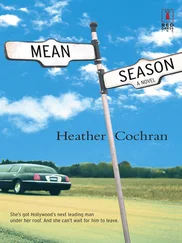Three years older, Kurt probably remembered that stretch of time better than I did, but he didn’t like to talk about it, except to say how scared he’d been to restart third grade in a new school of strangers, even if Mom had promised that they’d be nicer. I didn’t notice that they were any nicer than the kids back in Roanoke.
My parents lived in that first Piedmont house for a few years, then moved to a bigger one, and eventually landed in the four-bedroom traditional on Banner Hill, where I spent my middle and high-school years. Each time we moved, my father would grouse for months about costs and bills and how the hell was he expected to afford it, what with pottery lessons and soccer uniforms and college tuitions for two and then three kids. But my mother had grown up knowing want (her family was from Hayward, down the east bay between nothing and nowhere). As a child, she had dreamed of living in a house with a three-car garage and a pool in Piedmont, a tony little town totally surrounded by the much larger city of Oakland. The Banner Hill house had both the garage and the pool. It was where she felt she had been meant to live, where she deserved to live. And it was where my parents would celebrate their thirty-fifth anniversary.
I arrived at the house at the same time as the Maselins, long-time neighbors from down the block. Mrs. Maselin I barely knew. She was painfully shy and seemed rarely to speak. Their son, Brian, was nice enough and had been friends with Kurt since both boys had been in their teens. And then there was Mr. Maselin.
My own father wasn’t easy to get along with, often coming across as aloof and angry at the same time. But at least he didn’t hit on every woman in a thirty-foot radius. That was Mr. Maselin’s calling card, as was his reference, usually within the first minute of conversation, to whatever he’d most recently acquired—the biggest car on the block, the loudest stereo, the longest wet bar. He was a man of unwelcome superlatives.
I didn’t know whether he had ever actually been unfaithful to his wife, Ellen, but he acted as though he wanted to be and as though he would be, should the opportunity present itself. I didn’t like feeling that he was constantly seeking an opportunity. And I’d always hated the way his eyes combed over my mother.
The Maselins had pulled up to my parents’ house just before I did. They lived four houses down, but they had driven to the party. If I followed them through the front door, I knew I would have to smile politely and hear what new gadget Ian had just bought. Instead, I wound past the side of the garage, back toward the pool. Maybe I couldn’t avoid an exchange of pleasantries with Ian Maselin, but I could down a drink first.
My mother had spent months planning the anniversary party, meaning that she paid a party planner and remained available to make hard choices like, yes Stilton, no Muenster. From the looks of the place, the planner had earned her money. In the light of tiki torches, the back patio was washed a golden magical. Someone had trimmed the hedges and scrubbed down the deck. Fresh flowers floated across the pool. There were two bars and three bartenders and a good-looking wait-staff circulated with trays of buttery treats in puffs and crusts.
I grabbed a beer and gazed around the patio, trying to spot Kurt or Blake or Uncle Ed, my mother’s older brother. Instead my eyes landed on my ex-boyfriend Gene. Before he could see me, I ducked inside the house and tracked my mother’s voice to the kitchen.
“Gene’s here,” I said.
She looked up from where she stood, hovering over a caterer as he tried to arrange a tray of fruit and cheese. “Sasha! You made it. And don’t you look, well, androgynously festive!” She held out her hand and gave me a squeeze.
My mother was wearing the diamond necklace my father had given her for their thirtieth anniversary and the diamond bracelet she had bought for herself “just because.” I’d never before seen the outfit she wore, but no doubt it was the finest of several she had acquired for the occasion.
I chose to ignore her comment. “Gene’s here,” I said again.
“How lovely. I’ll have to come out and say hello. Why don’t you put some more cheddar on that one,” she told the caterer. “Orange is such a nice summery color.”
I knew a fake smile when I saw one, and the caterer’s smile to my mother was just that.
“You didn’t tell me he was going to be here,” I said, trying to get her to focus on something other than cheese. I wasn’t sure whether I was more frustrated that she had invited Gene or that I hadn’t foreseen as much. I should have known; “I didn’t realize you’d mind” was one of her set pieces.
“I wasn’t sure he’d be able to make it.”
“That’s not the point,” I told her. “I told you that we broke up.”
My mother put on her sad face. “So I’m not allowed to see my friend Gene anymore?”
“He’s not your friend—he’s your mailman. And it’s not that you can’t see him. Just, a little warning would have been nice.”
“He’s your mailman now,” my mother reminded me.
It was true, but that was not the point either. Gene had originally worked my parents’ route, which is how my mother had met him. She had found him appealing, in a reliable, rain-sleet-snow sort of way, and over a series of brief conversations, she had ascertained that he was both single and straight. Based solely on these two traits, she had deemed him a perfect life partner for her only daughter.
Gene had transferred to Oakland just before we’d started dating, to a route that included my house. I didn’t consider my neighborhood anything special, but Gene had grown up around there, and he’d been angling to get back to familiar sidewalks from the moment he’d joined the postal service.
I’ll give him credit—for all the ways he’d irked me while we’d dated, I’d never enjoyed such consistent and timely mail delivery. And I knew that it wouldn’t change, even now that we were no longer together. Gene wasn’t vindictive in the least, and he took pride in the quality of his work. In a way, he was perfect. As a mailman.
“Is he going to make you uncomfortable, sweetheart? Do you want me to go out there and ask him to leave?” my mother asked. “I wouldn’t have invited him if I’d known.”
I doubted this, but the fact was it wasn’t my evening to whine.
“I’m sure it’ll be fine,” I said.
“That’s exactly what I thought!” My mother smiled brightly before turning back to the caterer. “What about grapes? People like grapes.”
“We could do grapes if you want,” he said. He looked tired.
“Here, Mom,” I said, taking her by the elbow. “Why don’t you let the professionals do that.”
“I’m just trying to help. Scott,” she said, turning to the caterer. “I’m not bothering you, am I?”
“I’m sure Scott agrees that you should be out enjoying your party,” I said. “Did you see that the Maselins were here?”
My mother must have already been on her way to another thought. When she answered, her voice sounded far off. “Oh, really,” she said. “I should say hello.”
“Thanks for that,” Scott said after she left. He gave me a smile that I liked to think looked less forced.
“She means well.” I picked a grape off the platter and popped it into my mouth. “At least, that’s what I keep telling myself.”
I returned to the patio and found Gene by the pool.
“Hey there, stranger,” I said. I’d avoided saying hi to him ever since he’d told me that had been a joke in intermediate school. All the kids coming up, saying “Hi Gene,” thinking they were so clever.
“Why, hello Sasha.” He was always so polite, an otherwise inoffensive trait that had grown to annoy me. It was as if I’d become allergic to everything about him. You break up with someone, and then, maybe to prove to yourself that it was the right thing to do, you find all the ways that the person was wrong for you, wrong for your life or just plain wrong.
Читать дальше












